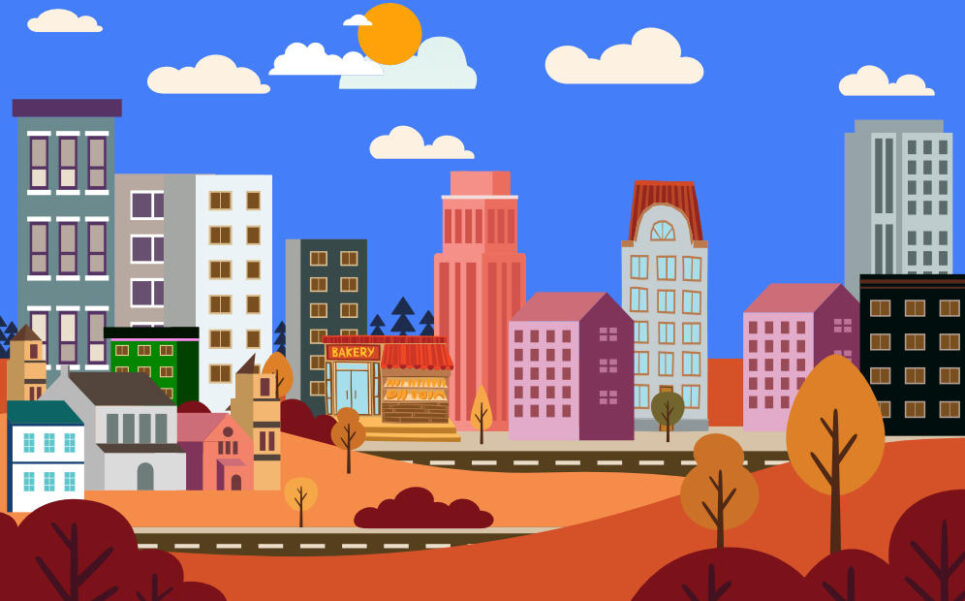Housing is a fundamental human right for safety, health, and well-being. Yet, millions of people worldwide struggle to find affordable and adequate homes.
Today we still manage to be a society that permits people to live in less than favorable conditions.
Economic inequality, rapid urbanization, and market dynamics drive the global housing crisis. It affects both developing and developed nations.
The Problem
Before addressing the issue, it’s important to first define what it entails.

According to Britannica, homelessness is the state of having no home or permanent place of residence.
Few social issues are as visible as the plight of homeless individuals. Homelessness is now a common sight in cities, suburbs, and even some rural areas.
The United Nations reports that approximately 1.6 billion people worldwide lack access to adequate housing, with around 100 million people living without a home.
The United Nations stated that “Adequate housing is a basic human right, essential for the well-being of all.” Solving the housing crisis is about creating inclusive, sustainable, and compassionate societies where every individual, regardless of their economic status or origin, has a safe place to call home.
In cities around the globe, affordable housing has become increasingly scarce, driving up rents and forcing many into unsafe living conditions or informal settlements.
Key Factors Contributing to the Crisis
There are several key factors that have contributed to a crisis that seems to grow by the minute.
** Urbanization and Population Growth.
The thing is that urbanization has accelerated rapidly in recent decades. By 2050, it is estimated that two-thirds of the world’s population will live in cities.

In South America, cities like Buenos Aires and Bogotá are grappling with rapid urbanization, creating a critical need for affordable housing. Slums ( overcrowded urban streets or districts inhabited by very poor people), such as Villa 31 in Buenos Aires, have expanded as low-income residents struggle to afford formal housing.
Similarly, Manila in the Philippines faces the challenge of accommodating its growing population, leading to the proliferation of informal settlements in precarious areas prone to floods and fires.
** Economic Inequality
The gap between rich and poor has widened globally, and housing markets reflect this disparity.

In Europe, particularly in cities like Berlin and London, the surge in housing prices has marginalized low- and middle-income families. Berlin’s rental crisis has led to protests, with residents demanding stronger rent controls and housing reforms as locals are priced out by gentrification and foreign investors.
In South America, São Paulo has seen a surge in luxury real estate projects, while its favelas continue to expand due to the lack of affordable housing options.
** Government Policies and Market Failures
It is important to note that government policies can exacerbate housing crises when they limit new housing developments or fail to control speculation.
In South Korea, particularly in Seoul, the lack of affordable housing for young people has become a pressing issue. High property prices and speculation in real estate markets have left many unable to purchase homes, forcing reliance on rental systems like the “Jeonse” model, which requires large lump-sum deposits that many cannot afford.
In Chile, rapid urbanization in cities like Santiago has outpaced the government’s ability to provide affordable housing, resulting in the rise of informal settlements and severe overcrowding.
** Global Financialization of Housing
Housing is increasingly being treated as an investment, rather than a basic necessity.
In cities like Barcelona and Dublin, housing prices have been driven up by short-term rental platforms such as Airbnb, as well as by institutional investors buying properties as assets.
** Climate Change and Natural Disasters
Climate change is emerging as a significant threat to housing, especially in vulnerable regions.

A perfect example takes place in Bangladesh as it is grappling with rising sea levels, which are displacing millions and pushing them into already overcrowded urban slums in cities like Dhaka.

In South America, Peru has been hit by frequent floods, leading to the destruction of informal settlements and leaving many without homes.
Climate-related displacement is becoming a critical driver of housing crises in both regions.
** Migration and Refugee Crises
The migration crisis has strained housing in regions like Europe and Asia.
Greece and Italy continue to face housing shortages as they grapple with waves of refugees from the Middle East and Africa.
As waves of refugees from war-torn countries like Syria, Afghanistan, and Libya arrive, people often find themselves without adequate shelter.
In cities such as Berlin and Paris, the migration crisis has similarly strained housing resources. These cities have seen an influx of asylum seekers, leading to overcrowded shelters and a shortage of long-term housing solutions.
Many migrants are forced to live in temporary shelters or on the streets, contributing to rising homelessness.
In Asia, the Rohingya crisis in Bangladesh has led to the creation of vast refugee camps and overwhelming limited housing resources.
Meanwhile, in Colombia, millions of Venezuelans fleeing economic and political turmoil have overwhelmed local housing markets, leading to overcrowding and the expansion of informal settlements in cities like Bogotá and Cúcuta.
Consequently, many Venezuelan refugees have informal settlements, makeshift shelters, or the streets. In some cases, these migrants are forced to sleep in public parks, under bridges, or in overcrowded temporary shelters. The strain on public resources is immense, as local governments struggle to provide adequate housing, sanitation, and health services for both their citizens and the growing migrant population.
Consequences of the Housing Crisis
The global housing crisis has severe social, economic, and health implications.
In Buenos Aires, Villa 31 and other informal settlements lack proper sanitation and healthcare, exacerbating public health risks, particularly during the COVID-19 pandemic. In Mumbai, millions live in overcrowded slums like Dharavi, where access to clean water and sanitation is severely limited. Meanwhile, in London, middle-income families are being priced out of the city, forced to move to distant suburbs and endure long commutes.
Homelessness is another tragic consequence. In cities such as Los Angeles, São Paulo, and Paris, homelessness has reached unprecedented levels as affordable housing options disappear. Tent cities have sprung up in these urban centers, presenting new challenges for local governments as they struggle to provide adequate services and shelter.
In Buenos Aires, informal settlements like Villa 31 have expanded due to a lack of affordable housing. Rapid gentrification has displaced lower-income families from urban centers, pushing them into unsafe, overcrowded slums. Government efforts to regularize these informal areas have been slow, and many residents live without access to clean water, sanitation, or legal housing rights.
In Hong Kong, sky-high property prices have led to the rise of “nano flats,” tiny apartments averaging around 15 square meters. These units are often the only affordable option for young professionals and lower-income residents in one of the world’s most expensive housing markets. In Dhaka, Bangladesh, rural climate migrants displaced by floods and rising sea levels are moving into slums, where already strained infrastructure is ill-equipped to handle the influx.

In Berlin, rapid gentrification and foreign investment have driven housing prices to new heights, prompting widespread protests. The city’s historically affordable housing stock is shrinking as speculative buying and Airbnb rentals reduce the availability of long-term housing. In 2021, the city’s residents voted to expropriate large property owners to combat the housing crisis, though this remains a contentious issue.
Potential Solutions to the Housing Crisis
Addressing the global housing crisis requires innovative, multifaceted approaches. Governments, private developers, and international organizations must collaborate to create housing solutions that are inclusive, sustainable, and scalable.

Governments and developers need to prioritize the construction of affordable housing units. Public-private partnerships can help stimulate the development of homes for lower-income populations.
In Chile, the government has partnered with private developers to create social housing projects, but keeping up with demand remains a challenge.
Cities need to reform zoning laws to allow for denser, more affordable housing developments. Seoul has begun easing height restrictions and increasing the density of urban housing to tackle its housing crunch, but further reforms are needed to address affordability for low-income residents.
In cities like Berlin, rent control measures have been implemented to stabilize rents and prevent displacement. Strengthening tenant protections in cities worldwide is crucial to ensuring housing security for vulnerable populations.
In regions prone to climate disasters, building disaster-resilient, sustainable housing is critical.
Bangladesh is working on climate-resilient housing solutions for areas at risk of flooding, though funding and international support are needed to scale these efforts.
International Cooperation
Colombia has sought international aid to support housing efforts for Venezuelan refugees. Global cooperation and funding are essential to address displacement and housing crises in regions facing migration challenges.
Conclusion
The global housing crisis is one of the most urgent challenges of our time. It is affecting both developed and developing nations.

From Buenos Aires’ slums to Berlin’s rent crisis, housing insecurity is a complex issue that demands coordinated international action.
Solving this crisis will require a combination of policy reforms, sustainable development, and a renewed commitment to treating housing as a fundamental human right.
Ensuring that everyone has access to safe, affordable, and dignified housing is not only a moral imperative but also essential for fostering more equitable and sustainable societies.
In the long term, housing must be reframed as a human right, not merely a market commodity.
Failure to address the homelessness crisis will not only deepen social inequalities but will also have profound implications for public health, economic development, and social cohesion.


